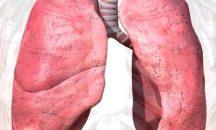Vaginal discharge; different tales

Every woman goes through the necessary process of vaginal discharge. It is crucial because this discharge flushes bacteria and dead cells from the vagina, keeping it clean and healthy. Studies advise only washing the outside of your vagina with water because of the vagina’s self-cleaning ability.
Vaginal discharge can vary in texture, amount, and colour (from clear to milky white on average) depending on several variables, such as your menstrual cycle, ovulating, nursing, or even being sexually aroused.


However, the colour, smell, or consistency can change if the vagina’s average bacteria balance is upset, resulting in symptoms like:
- Vaginal itching
- Burning sensation
- Pain
- Strong odour discharge
- Burning sensation during urination.
Consult a doctor as soon as possible if you ever experience any of the above symptoms. The doctor will do a pelvic examination, and it might be necessary to collect a sample of the discharge for testing. Please ‘DO NOT’ self-medicate, ladies! Shy away from self-medication because abnormal discharge can result from several factors, such as:
- Bacterial infections
- Yeast infections
- Urinary tract infections
- Sexually transmitted diseases (gonorrhoea, chlamydia)
- Cervical cancer
- Pelvic infection after surgery
- Diabetes
- Douching
Self-diagnosis or treatment of vaginal discharge may lead to delayed diagnosis and treatment of diseases such as cervical cancer, gonorrhoea, chlamydia, and diabetes. Furthermore, if the infection is not bacterial and you continue taking antibiotics, you risk eliminating healthy bacteria and developing yeast infections. In this situation, you would be making your condition worse. Furthermore, consuming too many antibiotics can make you resistant to them.
I hope this is sufficient justification for you to schedule a medical appointment the next time you experience any unusual discharge.
Source:
Maureen Masopeh
(Content Creator, Health Essentials Ghana.)
References:
- WebMD
- who.int
- www.pubmed.ncbi.nlm.nih.gov














